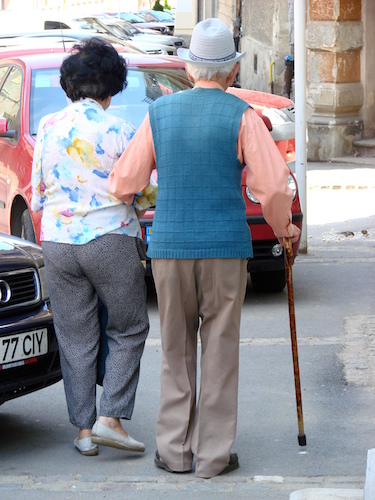In his book 30 Lessons For Living, Karl Pillemer interviewed over 1,000 elderly Americans in their 80s and 90s and asked for their advice on, among other things, how to live the happiest life possible. Here’s the collective advice as it pertains to living the good life.
1. Time is of the essence.
Live as though life is short—because it is. The point is not to be depressed by this knowledge but to act on it, making sure to do the important things now.
2. Happiness is a choice, not a condition.
Happiness isn’t a condition that occurs when circumstances are perfect or nearly so. Sooner or later you need to make a deliberate choice to be happy in spite of the challenges and difficulties.
3. Marry someone a lot like you.
Similarity in core values and background is the key to a happy marriage. And forget about changing someone after marriage.
4. Don’t just commit to your partner—commit to marriage itself.
Make a commitment to the idea of marriage and take it seriously. There are enormous benefits to seeing the marriage as bigger than the immediate needs of each partner.
5. When it comes to your kids, it’s all about time.
Sacrifice if necessary to spend the maximum amount of time possible with your children. You and your children need to be together in the flow of daily household life and not just during planned “quality time.”
6. Stay connected.
Take seriously the threat of social isolation, and make conscious efforts to stay connected through new learned opportunities and relationships.
7. Time spent worrying is time wasted.
Stop worrying. Or at least cut it down. It’s a colossal waste of your precious lifetime.
8. Act now like you will need your body for 100 years.
Stop using “I don’t care how long I live” as an excuse for bad health habits. Behaviors like smoking, poor eating habits and inactivity are less likely to kill you than to sentence you to decades of chronic disease.
9. Think small.
When it comes to making the most of your life, think small. Attune yourself to simple daily pleasures and learn to savor them now.
10. Have faith.
A faithful life promotes well-being, and being part of a religious community offers support during life crises. But how and what you worship is up to you.
11. Always be honest.
Avoid acts of dishonesty, both big and small. Most people suffer from serious regret later on in life if they have been less than “fair and square.”
12. Say “yes” to opportunities.
When offered a new opportunity or a challenge, you are much less likely to regret saying yes and more likely to regret turning it down.
13. Travel more.
Travel while you can, sacrificing other things if necessary to do so. Most people look back on their travel adventures (big and small) as highlights of their lives and regret not travelling more.
14. Say it now.
People wind up saying the sad words “it might have been” by failing to express themselves before it’s too late. Don’t believe the “ghost whisperers”—the only time you can share your deepest feelings is while people are still alive.
~
These are all good suggestions, I believe, but what’s conspicuously absent from this list is “work really hard at your job”, “make a lot of money” or “put your career first.”
In fact, out of the 1,000+ people interviewed, not a single one said that to be happy, you should try to work as hard as you can to make money to buy the things that you want.
Not a single person said that it’s important to be at least as wealthy as the people around you, and that if you have more than they do, then it means you’re “successful.”
Not a single person said that you should choose your work based on how much you’re going to get paid. In fact, the results conclude that “a sense of purpose and passion for one’s work beats a bigger pay check any day.”
Just some food for thought.
~
~
Love elephant and want to go steady?
Sign up for our (curated) daily and weekly newsletters!
Editor: Rachel Nussbaum
Photo: Wikimedia Commons











Read 1 comment and reply